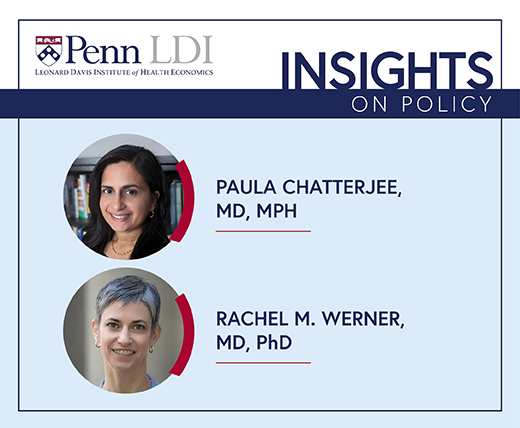
Analysis of the Rural Health Transformation Program
Memo: Response to Request for Analysis
News
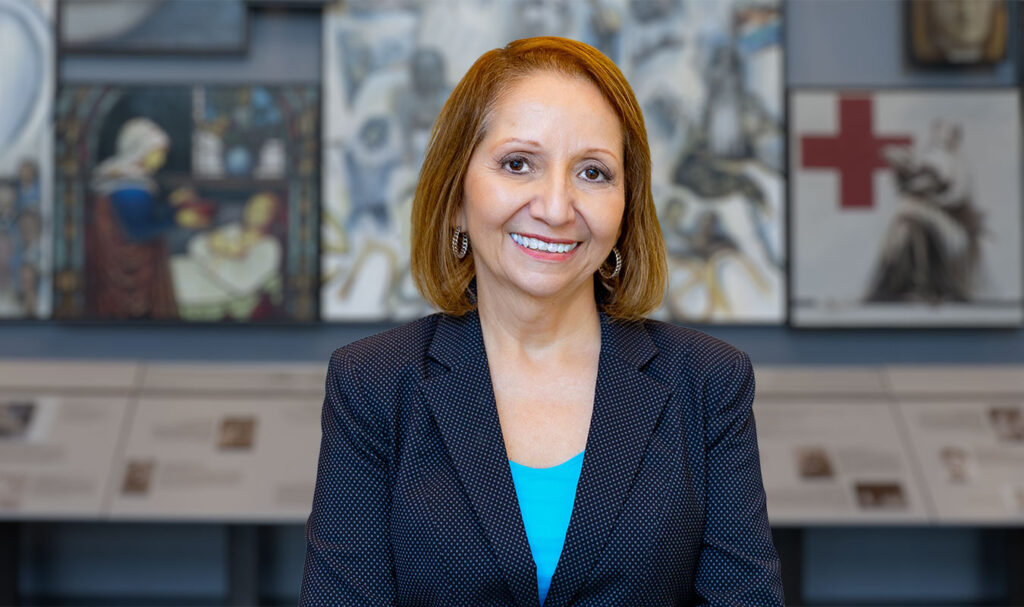
LDI Senior Fellow and Dean of the University of Pennsylvania School of Nursing Antonia M. Villarruel, PhD, RN, is one of 11 top national authorities in health equity who have authored a new American Public Health Association (APHA) book examining how the social determinants of health (SDOH) and their impact differ across multiple racial and ethnic groups in the United States.
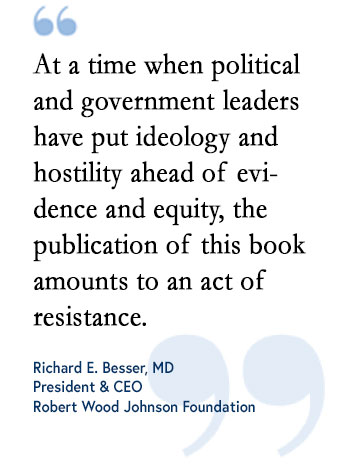
In the book’s foreword, Richard E. Besser, MD, President and CEO of the Robert Wood Johnson Foundation, writes: “It should not be controversial to identify factors that affect health and well-being and provide evidence-based studies of the different and often disproportionate ways those factors affect certain groups. But at a time when political and government leaders have put ideology and hostility ahead of evidence and equity, the publication of this book amounts to an act of resistance.”
In a second foreword, National Academy of Medicine President Victor J. Dzau, MD, writes: “Health outcomes in the United States are profoundly shaped by many interlocking social and structural systems… (This book) points leaders toward strategies with promise for improving health, especially in places where progress has been uneven. It is a companion for policymakers, practitioners, and community partners who want steadier gains that reach every community.”
In their introduction, Villarruel and her co-authors write: “While our nation holds diverse opinions about the nature of social inequities, the scientific literature has been steadily building an evidence base on the important role that racism plays in generating these inequities… Rather than shy away from discussing these issues, it is important that we examine the research base and engage in constructive dialogue. This book aims to do just that.”
Titled “Systems That Impact Population Health Past and Present,” the book combines historical analysis, contemporary policy review, and population-specific chapters to show how racism functions across social systems—including health care, education, employment, housing, the environment, justice, and immigration—to produce persistent health inequities.
The 365-page, eight-chapter work drills down into how the social determinants of health negatively—and often quite differently—affect the country’s populations of Black, Latino, Asian, Middle Eastern, Native Hawaiian, and Pacific Islander people.
“We examined the population groups as defined by the Office of Management and Budget (OMB) classification, which includes Whites,” said Villarruel. “In fact, the White chapter is quite powerful and gets at the theme that inequities affect us all.”
The new publication arrives as major changes in federal, state, and institutional health and health care policies have created a new environment that reinforces many of the systemic forces the book sets out to document.
“There is a dissonance in all of this,” said Villarruel, whose extensive research and practice experience focuses on Latino populations, community-engaged research, and health equity. “The point of the individual and collective contributions in the book makes clear that inequities are caused by systems and policies. The impact of these policies not only affects specific groups, but the entire population. Policies meant to diminish one group diminish us all. We all drink from the same river!”
Nine of the book’s 11 authors are top national authorities in health equity research from eight universities: Penn, University of Michigan, University of Kansas, Johns Hopkins University, University of Chicago, UC Berkeley, Temple University, and the University of Maryland. The 10th author is from the Missouri Foundation for Health, and the 11th is co-founder of the Utah Pacific Islander Health Coalition and a Representative in the Utah State House.
In Chapter 4, “Examining the Impacts of the Interrelated Systems of Education, Employment, and Health Care on the Life Course and Well-Being of Latino Populations,” Villarruel and her colleagues note that the terms “Hispanic” and “Latino,” widely used by the media, policymakers, and pundits to describe a supposedly monolithic cultural group, are inaccurate in that context. The Spanish-speaking population in the United States is highly diverse, consisting of subgroups that differ dramatically and often experience widely varying levels of social and economic integration as well as distinct health disparities.
“Hispanic/Latino is an ethnicity, not a race, and includes many national and ancestral ethnic groups that may be white, Black, Mestizo, Asian, or Indigenous. Although often ignored, race among Latino populations does matter significantly,” the authors write. “Latinos are extremely heterogeneous with respect to race, colorism, and mixed race in the United States. Mexicans and Puerto Ricans have historically been deeply affected by the policies and practices associated with race, ethnicity, indigeneity, and mixed-race identities, including Afro-Latinos. Racialization due to history, phenotype, and skin color are key determinants of treatment in the United States for those groups where colonization and land takeover occurred, as in the U.S. Southwest and West.”
The chapter’s three major points are:
• Latino subgroups must be analyzed separately. Aggregated Latino data obscures major differences in SDOH and health disparities rooted in race, ancestry, national origin, class, and the historical policies that uniquely affected Mexican-origin and Puerto Rican communities.
• Mexican-origin and Puerto Rican groups face distinct structural disadvantages. They are more often mixed-race, Indigenous, or Black; less likely to have strong educational preparation; and more concentrated in service-sector jobs.
• Recent immigration has diversified who is considered Latino. Large South and Central American diasporas, along with Cuban Americans, generally have higher education, more wealth, and smoother social integration, creating privileges not shared by Mexican-origin, Puerto Rican, many Central American, and Afro-Latino groups.
The final book chapter ends with this observation:
“Americans widely support giving everyone a fair and just opportunity for health—part of the classic American dream… A series of conscious policy decisions have embedded racism in opportunity structures, so we can enact policies that intentionally root out racist structures, rules, regulations, and procedures that unfairly prevent everyone from having a chance for health and well-being… All racial and ethnic groups, including poor and disadvantaged whites, benefit from equitable social and health care policies, and the United States benefits economically when we do not waste the contributions and productivity of every American.”
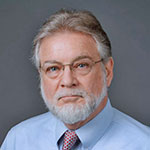

Memo: Response to Request for Analysis
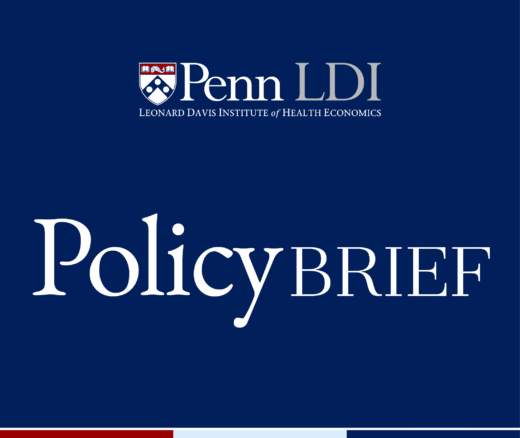
Lessons from the Past, Imperatives for the Future
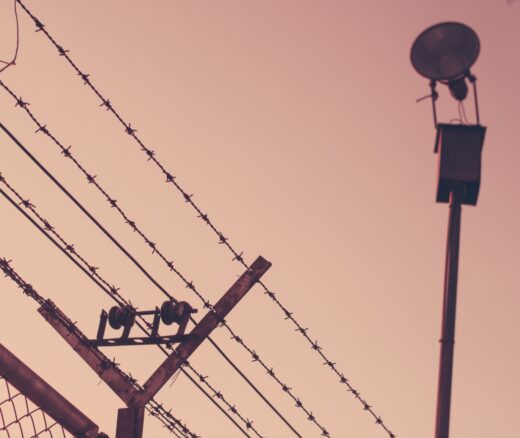
A New Study of a Sample of Facilities Found Half Without Any Behavioral Health Staff

Physicians Were Paid About 10% Less for Visits Involving Black and Hispanic Patients, With Pediatric Gaps Reaching 15%, According to a First-of-Its-Kind LDI Analysis

A New Review Finds Hospital Mergers Raise Prices Without Improving Care, and Urges Regulators to Stop Accepting Quality Claims to Justify Consolidations
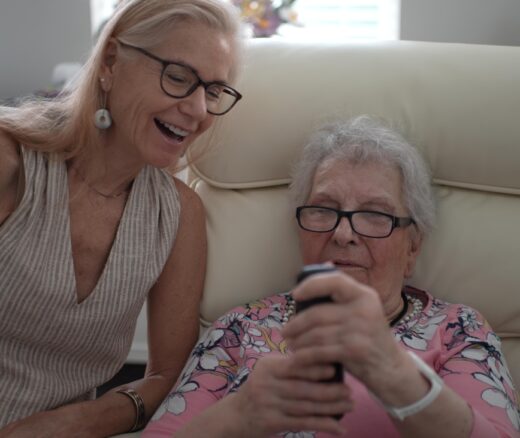
Technology Helps Older Adults Stay at Home—But May Delay Necessary Transitions to Higher Levels of Care